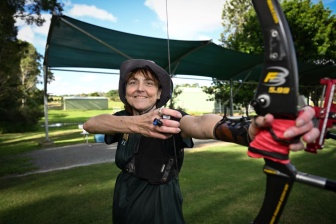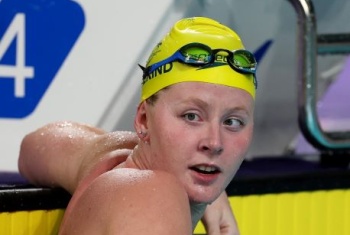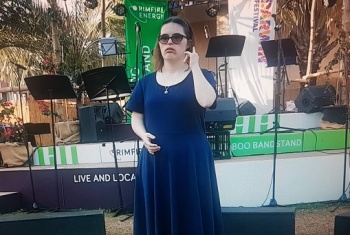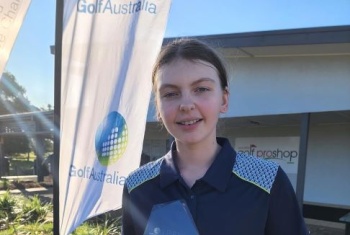When it comes to targeting her goals, former opera singer and now Para archer extraordinaire Janelle Colquhoun always makes her mark.
The NDIS participant, 57, who lost her sight at 29 due to complications from Type 1 Diabetes, is targeting success at the National Para and VI Championships in Sydney in April.
With her self-belief and added confidence in having her NDIS-funded archery assistant setting her up for success, Janelle has gold in her crosshairs.
‘I competed at the IBSA World Games in Birmingham in August last year and shot terribly after hurting my back,’ Janelle said.
‘Once I got back though, through physiotherapy I’m now right and have been training hard.
‘I’m confident of taking the gold or silver. As long as I’m in the gold medal shoot-off, I think I can win.’
Janelle has previously broken the Australian record for vision impaired archery in both indoor and outdoor competitions. No stranger to success, Janelle has also compiled multiple national titles.
Away from the archery range, Janelle’s achievements transcend the sporting area and into the music world.
Growing up in Brisbane, Janelle performed in choirs, stage shows and dance revues. She also won a scholarship to study Opera at the Queensland Conservatorium of Music.
After performing at the 1988 World Expo and with Dame Joan Sutherland on her farewell tour with the Australian Opera, she wowed the stages of Europe.
Janelle spent 7 years with Germany’s Frankfurt Opera before Diabetes took her sight.
‘I pretty much spent 6 months in Germany undergoing one operation after another trying to fix my sight. But then, I was told, “sorry, there’s nothing we can do, you’re blind”,’ Janelle said.
‘For the first 2 years I was angry and frustrated, but then I met my husband. With his encouragement and support, I started my business. It kind of snowballed from there.’
Janelle founded Salubrious Productions in 1999. The entertainment and production agency specialises in promoting professional artists with disability.
Janelle has now produced over 1400 mainstream and disability events, including concerts, art exhibitions, children’s shows, cabarets, and films.
An author, Janelle has written award-winning short stories. She also sits on Queensland Health committees as a consumer representative providing a voice for disability.
Fittingly, it was her connection with the performing arts which led Janelle on a path to the archery range.
‘I was over in Wales on an arts leadership mentorship. In a village called Grosmont, I found that on Friday nights, there was archery in an 18th century cathedral,’ Janelle said.
‘I went and checked it out and said, “I’m blind can I have a go?”. The lady was a former Olympian who’d taught blind archers. She helped me have a go and explained how I can get into it.’
Janelle now trains 2 to 3 days a week on the ranges of Brisbane’s Samford Valley Target Archers.
Janelle self manages her NDIS plan. She uses her flexible funding for assistive technologies (AT) and support workers with a knowledge of archery.
‘The NDIS has made such a difference for me,’ Janelle said. ‘Previously, I was relying on friends and family, and my husband to get me to training.
‘With work, my husband only had time once a week. So, having an archery assistant 2 to 3 times a week has been amazing. I doubled my personal best through having that regular assistant.
‘I also have a video tripod with a tactile on top which touches the back on my bow hand, and that’s my alignment. It’s then up to my assistant to get the tripod at the right height and direction at the target. I also have a foot plate for lining me up, and then, it’s up to technique.’
Beyond the range, Janelle uses her NDIS funding to source AT supports for home, as well as support workers to help build her social capacity and independence.
‘I have a talking blood pressure monitor, kitchen scales and bathroom scales, and talking book reader,’ Janelle said.
‘I also have a talking computer screen reader which I’d be lost without and wouldn’t be able to run my business.
‘One of my best friends said she’d stopped being a friend and had become my chauffeur. Now, we catch up and I can go out to meet her for lunch and a chat.
‘I also use my NDIS funding for a friend to transport us to choir practice, and she joins in with the singing as well.
‘I can also have someone take me shopping or to a writers festival… the NDIS has just taken so much pressure off.’



